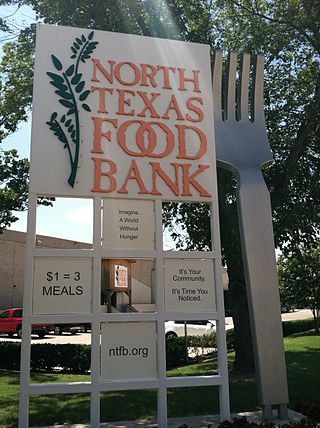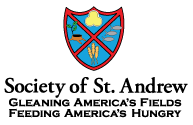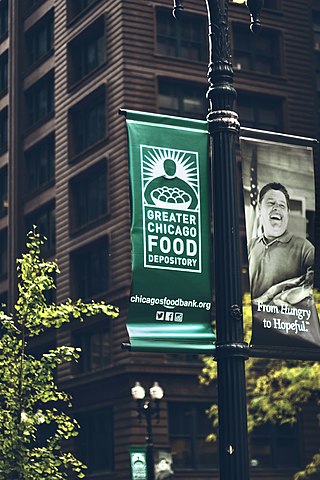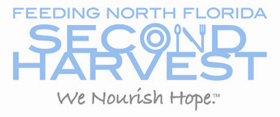Related Research Articles

A nonprofit organization (NPO), also known as a nonbusiness entity or nonprofit institution, and often referred to simply as a nonprofit, is a legal entity organized and operated for a collective, public or social benefit, as opposed to an entity that operates as a business aiming to generate a profit for its owners. A nonprofit is subject to the non-distribution constraint: any revenues that exceed expenses must be committed to the organization's purpose, not taken by private parties. An array of organizations are nonprofit, including some political organizations, schools, business associations, churches, social clubs, and consumer cooperatives. Nonprofit entities may seek approval from governments to be tax-exempt, and some may also qualify to receive tax-deductible contributions, but an entity may incorporate as a nonprofit entity without having tax-exempt status.

The disaster recovery response to Hurricane Katrina in late 2005 included U.S. federal government agencies such as the Federal Emergency Management Agency (FEMA), the United States Coast Guard (USCG), state and local-level agencies, federal and National Guard soldiers, non-governmental organizations, charities, and private individuals. Tens of thousands of volunteers and troops responded or were deployed to the disaster; most in the affected area but also throughout the U.S. at shelters set up in at least 19 states.

The North Texas Food Bank (NTFB) is a social benefit organization located in Plano, Texas. The organization distributes donated, purchased and prepared foods through a network of nearly 1,000 feeding programs and 400 Partner Agencies in 13 North Texas counties. The NTFB supports the nutritional needs of children, seniors, and families through education, advocacy and strategic partnerships.

Food for Life Global is a non-profit vegan food relief organization founded in 1995 to serve as the headquarters for Food for Life projects. Food for Life Global has its roots in ISKCON dating back to 1974. It is a completely independent non-profit organization that supports the work of Food for Life projects both inside and outside of ISKCON. Its network of 291 affiliates span the globe, with projects occupying over 65 countries. Volunteers provide over 1 million free meals daily. Food For Life engages in various sorts of hunger relief, including outreach to the homeless, provision for disadvantaged children throughout India, and provision for victims of natural disasters around the world.

Food rescue, also called food recovery, food salvage or surplus food redistribution, is the practice of gleaning edible food that would otherwise go to waste from places such as farms, produce markets, grocery stores, restaurants, or dining facilities and distributing it to local emergency food programs.

Redwood Empire Food Bank (REFB) is a food bank on the North Coast of California which belongs to the Feeding America network. Its mission is to end hunger in its community.

The Society of St. Andrew (SoSA) is a United Methodist hunger-relief nonprofit focusing on food wastage and poverty-induced starvation. The organization takes produce donations and serves them in SoSA-run distribution programs such as the Gleaning Network, Harvest of Hope, and the Seed Potato Project.
PROJECT C.U.R.E. is the registered trademark of the Benevolent Healthcare Foundation, a 501(c)(3) non-profit, humanitarian relief organization based in Denver, Colorado. It is one of the largest nonprofit organizations in the world that delivers medical supplies and equipment to developing countries. Its main purpose is to collect and sort donated medical supplies and equipment from manufacturers, hospitals, and surpluses and then distribute the supplies and equipment to developing countries based on a needs assessment of the local hospitals and clinics in those countries.

The Greater Chicago Food Depository (GCFD) is a nonprofit organization that fights hunger throughout Cook County, Illinois. The GCFD distributes donated and purchased food through a network of 700 food pantries, soup kitchens, shelters and community programs, serving more than 800,000 adults and children every year. In fiscal year 2016, the GCFD distributed more than 70 million pounds of nonperishable food, produce, dairy products, and meat - the equivalent of more than 160,000 meals every day. Of the $96,883,955 spent in 2016, over 90% went to direct food distribution programs.

Leket Israel, The National Food Bank, a registered nonprofit Israel-based charity, is the leading food rescue organization in Israel, serving 175,000+ needy people weekly. Leket Israel rescues surplus agricultural produce and collects excess cooked meals for redistribution to the needy throughout Israel via its network of 200+ nonprofit organization (NPO) partners.
Food Donation Connection (FDC), LLC is a privately owned American company in Knoxville, Tennessee that serves as a liaison between restaurants/food service companies interested in donating surplus food and local social service agencies that distribute food to people in need. FDC's objective is to redirect prepared food that would otherwise be discarded to help feed the hungry.

Second Harvest North Florida (SHNF) is a 501(c)(3) non-profit organization located in Jacksonville, Florida, that performs food rescue and redistribution to partner agencies in one quarter of Florida's 67 counties. The charitable organization has been active for over 30 years.
Forgotten Harvest is a non-profit food rescue organization that collects food that would otherwise go to waste and delivers it free of charge to organizations feeding the hungry in Metro Detroit. In 2015, the nonprofit distributed more than 40 million pounds of food to more than 260 emergency food providers.

The 3000 Club started as a Phoenix-based charity which works with food banks in Arizona in order to reduce food waste. The 3000 Club's main program is known as Market on the Move, although the organization provides other services for Arizona communities. Their previous mission statement "Providing life saving fresh fruits and vegetables to impoverished families" has been changed to "nothing useful should end up in a landfill."

La Soupe is a Cincinnati, Ohio, nonprofit organization that uses discarded food to produce meals and delivers them to other nonprofit agencies for distribution to people experiencing food insecurity.
Teresa Renkenberger is a woman from Flowood, Mississippi who created a mobile shower truck for homeless people in the Jackson, Mississippi area. The truck, which she calls "Shower Power", is a converted food truck.

The COVID-19 pandemic has greatly impacted the international and domestic economies. Thus, many organizations, private individuals, religious institutions and governments have created different charitable drives, concerts and other events to lessen the economic impact felt.

Midwest Food Bank is an American 501(c)(3) non-profit organization that gathers food donations, primarily from large companies, and distributes them to other non-profit organizations and disaster sites. Founded on a family farm in Bloomington, Illinois, in 2003, Midwest Food Bank began expanding in 2005 after contributing to disaster relief efforts for Hurricane Katrina. Currently, it operates ten locations in the United States and two internationally. As of 2021, it was the United States' thirty-ninth-largest charity and second-largest food bank by revenue; each month, it distributes more than $32 million worth of food to more than 2,000 other non-profit organizations.

The Farmlink Project is a United States-based non-profit organization that combats food waste by collecting excess produce from farms and other food donors across America and delivering it to organizations that serve food insecure communities. Since its founding in 2020, the organization has rescued over 130 million pounds of food, distributed to over 400 communities, and grown to a network of over 600 volunteers nationwide.
References
- 1 2 3 Ballou, Howard (February 4, 2007). "The Gleaners Making A Difference". wlbt.com. WLBT . Retrieved 2009-04-21.
- ↑ Location of Gleaners on Google Maps
- ↑ Howard Ballou, "The Gleaners Making A Difference" MS News, February 4, 2007
- ↑ "Letter from Musgrove to Martinson, January 31, 2001" (PDF). Archived from the original (PDF) on July 22, 2011. Retrieved November 1, 2016.
- ↑ Fabvienen Taylor, "The Gleaners keeps food moving" Archived 2011-07-14 at the Wayback Machine , Mississippi Catholic, July 25, 2008